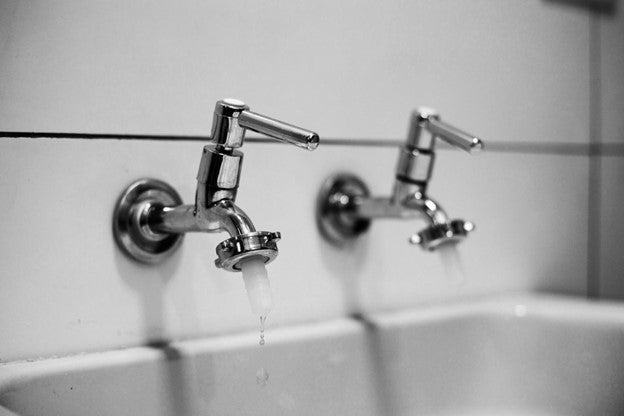Are Plumbing Pipes Making Noise? These Could Be the Possible Reasons

(Pun intended) Humans aren’t the only ones to hiss, whistle, shriek, and whine; plumbing pipes often do that, too. And when they do, it doesn’t just feel strange but can be downright freaky. Although there’s nothing to fear, you should be concerned about your plumbing system when it starts making weird noises and call a professional plumber at your earliest.
While calling a plumber is the ultimate way of dealing with noisy pipes, if you’re wondering what caused them, keep reading as we discuss the possible causes of noisy water pipes.
7 Common Causes of Noisy Water Pipes
If your plumbing system is giving off strange sounds, it could be due to one of the following reasons:
1. Loose Fittings
If your plumbing system makes rattling, clunking sounds, you most likely have loose-fitting pipes. They may have become loose over time or never fitted properly.
Since flowing water creates friction and pressure, it can make loose-fitted pipes hit the nearby walls or other pipes, resulting in rattling and clunking sounds.
Fixing poorly fitted pipes can be a quick task or a major plumbing job, depending on where the sounds are coming from, the position of the pipes, and the scale of the problem. Sometimes it just requires replacing a worn-out fixture or securing the pipes with tightening bolts. But at other times, it may require digging into the walls or floors (when pipes are concealed) or rerouting the pipes.
2. Blockages
Gurgling is a common plumbing noise. Unfortunately, it is also often the worst because it indicates blockages/clogs in the drain line. Ignoring this sound puts you at risk of a plumbing disaster. So, take action immediately.
The blockage or clog could just be the buildup of dirt, scum, and waste, or it could be the result of something stuck in the drain pipe. This is why plumbers stress on not throwing leftover foods, wipes, paper towels, sanitary napkins, etc., down the drains.
3. Sludge Buildup
Hard water, regular wear and tear, and central water heating systems are all possible causes of sludge in the plumbing system, which. when flows through the pipes (with water), makes rattling or clinking sounds. One way of distinguishing the noise from sludge buildup from other rattling plumbing noises is that this one sounds like grit hitting a metallic surface.
4. High Water Pressure
If your water pipes seem to be vibrating or creating a humming sound, it’s most likely due to high water pressure. This usually isn’t a big problem but can lead to one if left untreated for too long. Different types and sizes of plumbing pipes are designed to handle certain levels of water pressure. If the water flowing through them is consistently high-pressure, the pipes will wear down much more quickly. It may lead to plumbing leaks as well.
Fortunately, fixing high water pressure is easy. The issue often arises due to a faulty water pressure regulator valve. Call a plumber to inspect, and fix it and your problem will be resolved.
5. Worn Down Air Chambers
There are small air chambers installed near faucets throughout the plumbing system. They work like buffers or diffusers, helping to prevent flowing water from slamming into valves when the faucets are turned off. Like any other fixture, they often wear out with time, losing efficiency. As a result, the rushing water crashes into the valve, making a loud banging, hammering, or thudding noise, every time you turn off a faucet. Professionals call it the ‘water hammer.’
Fixing a water hammer requires repairing the worn-down air chambers. Call a plumber to do this for you.
6. Trapped Air
Sometimes the banging noises you hear from your pipes can also be due to air trapped in them. When this happens, you typically hear banging noises when you turn on a faucet due to the air moving up and down due to rushing water. It also causes the water to sputter.
There can be several reasons why air can get trapped in water pipes. It could be due to tiny leaks or faulty or damaged parts. Air can also get trapped in your plumbing system after a maintenance, repair, or new installation task that involved opening up the pipes. The latter usually gets resolved on its own within a few days, but other issues require fixing. Also, if the problem isn’t resolved within a few days of new installation or repair work, it may be a sign of incorrect installation or poor fitting.
7. Faulty, Damaged, or Worn Out Fixtures
Screeching, whistling, and/or squealing are also common plumbing noises. These typically signify a faulty, damaged, or worn-out fixture or part in your plumbing system. It could be a faucet, washer, or something as small as a nut or bolt. The issue is easy to fix but requires expert knowledge and skills to determine what exactly is causing it.
The Final Word
Your plumbing system could make several different kinds of noises due to a variety of reasons. However, most often than not, the underlying issues are easy to fix, if addressed on time. Delaying any plumbing repair task for too long only worsens the issue, increasing the repair time and cost. So, don’t overlook or ignore any strange sounds your plumbing system may be giving off, and call a reliable plumber promptly. If you’re looking for a trusted plumber in New Jersey, call Bob Hoegler Plumbing at 732-595-2078.
Image Credits
Photo by danilo.alvesd on Unsplash
RECENT POSTS
categories
Archives
2024
2023
2022
2021
2020
2019
- December (2)
- November (2)
- October (2)
- September (2)
- August (2)
- July (2)
- June (2)
- May (2)
- April (2)
- March (2)
- February (2)
- January (2)

